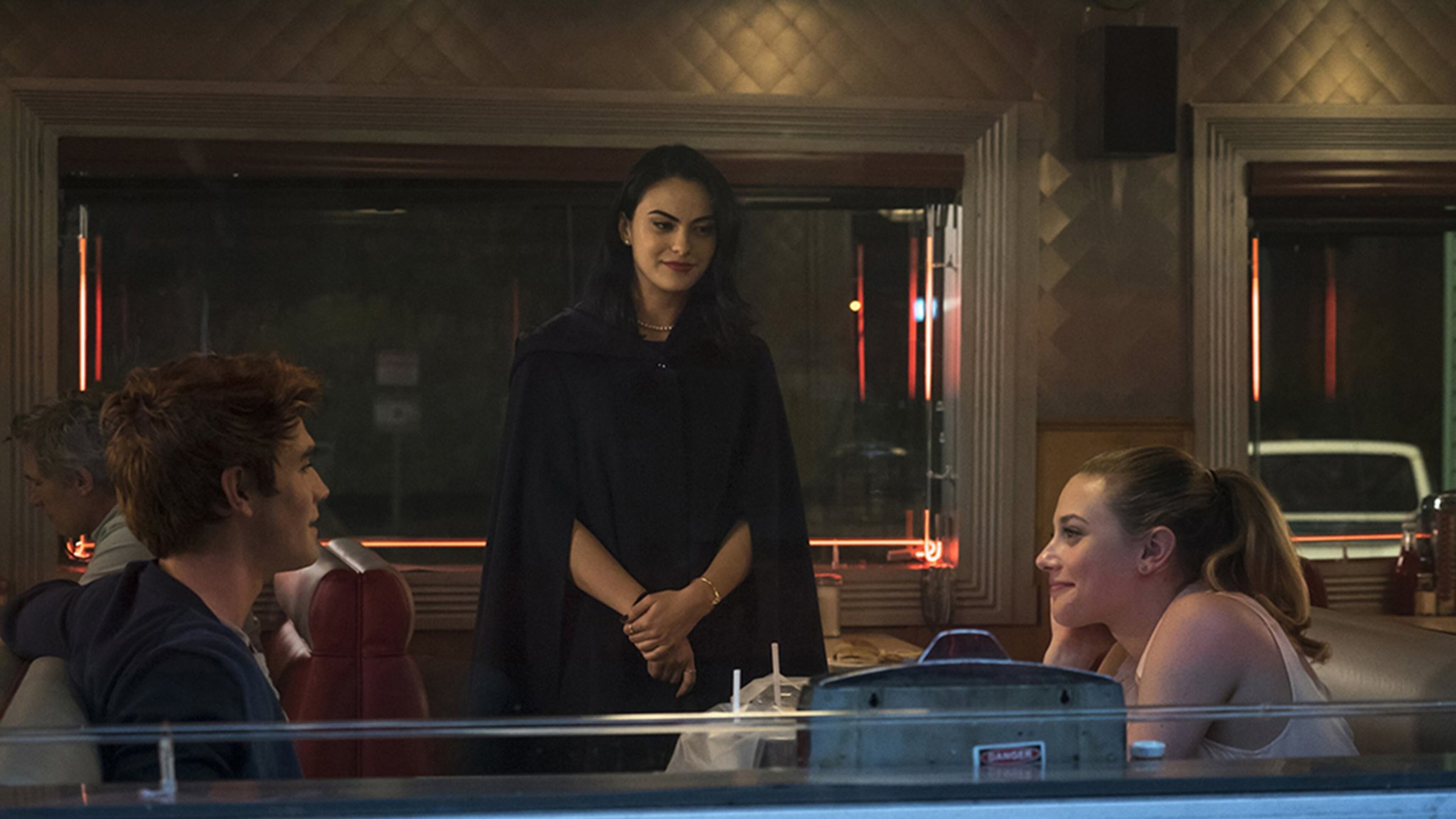Comic book crew gets personality update

On paper, the concept sounds a bit mad: What if the freckled-faced teens of the wholesome “Archie” comics were wrapped up in a seedy murder mystery? And yet the CW’s “Riverdale,” which premieres Jan. 26, is arguably one of the most anticipated new series of 2017.
Ever since “Riverdale’s” pilot debut at San Diego Comic-Con last summer, fans have been buzzing about this “Twin Peaks” meets “Dawson’s Creek” drama.
Gone are the cartoonish glances and cross-hatched sideburns, the new Archie — as embodied by K.J. Apa — is ripped.
In fact, everyone in Riverdale — “The town with pep!” — has changed. Betty Cooper (Lili Reinhart) pops Adderall, Veronica Lodge’s (Camila Mendes) family is in ruins, Ms. Grundy (Sarah Habel) is no longer a senior citizen but a “Lolita”-sunglasses-wearing cougar, and, oh, yeah, Archie’s dad is Luke Perry.
The plot picks up after the suspicious death of a Riverdale High student and teeters between teen drama and murder mystery for the rest of the season. “We always try to tell a story that works both as an ‘Archie’ story and as a noir, David Lynch-ian kind of story,” said Roberto Aguirre-Sacasa, series creator and executive producer.
Aguirre-Sacasa’s eclectic work history laid the groundwork for the series. As a playwright he wrote the book for Duncan Sheik’s musical adaptation of “American Psycho,” he worked on TV series including “Big Love,” “Looking” and “Glee,” and, after 11 years writing comic books, he was named chief creative officer for “Archie” Comics. Despite “Riverdale’s” new moody aesthetic of fog-filled streets (even Pop’s Chok’lit Shoppe is shrouded in mist), Aguirre-Sacasa insists that the central themes of the series will always return to those of the “Archie” comics he grew up reading.
“Our show is not that different from the core of ‘Archie’ from the 1940s or the 1950s. Archie, in the comics, was a good kid who always tried to do his best, frequently screwed up, made things worse before he made them better, and then learned a lesson. The Archie on our show is actually like that as well. He is basically a good kid, but he’s in much more adult situations than he ever was in the comic book. He’s wrestling with that, but his essence is still the same.”
The same holds true for Betty and Veronica, he says, noting that the former is still the “perfect girl next door” who gets good grades and wants to be a cheerleader. “What we’re exploring is, what is the cost of being perfect?”
Executive producer Greg Berlanti, who oversees the CW comic book adaptations of “Arrow” and “The Flash,” can trace his “Archie” influences all the way back to his days working on “Dawson’s Creek.” “This is one of the few instances where I’m working on something where it is actually (one of) the roots of the comic-book love triangle,” said Berlanti. “The original Dawson-Joey-Pacey was Betty-Archie-Veronica.”
But no matter how timeless the central themes may be — and despite the addition of the first openly gay character from the “Archie” comics in Kevin Keller (Casey Cott) — the producers felt that the source material still needed an update for modern audiences.
“A lot of these comic books were written in a time where the bulk of people reading them and writing them were white,” Berlanti said. “That’s not the world we live in anymore. We were cognizant about changing the ethnicity and updating the characters to make sure we didn’t want to look at a poster of ‘Riverdale’ with just all white people on it.”
Veronica Lodge is now played by Latino actress Mendes, and local Riverdale band Josie and the Pussycats is an all-black trio led by Ashleigh Murray.
The relationship between Betty and Veronica has also received tweaking. While the central love triangle remains intact, “Riverdale” has turned the trope slightly askew, refocusing more on the friendship between the women and not their desire for Archie.
“I’m not interested in stories about girls fighting with each other,” says executive producer Sarah Schechter. “That, to me, feels really antiquated, and it’s certainly not helpful. It doesn’t feel real to the depth of my relationship with other women as a woman. We were never interested in making them frenemies. They’re both complicated women.”
Not all characters were destined for a total overhaul. Archie is still very much a red-head, which Apa is reminded of every two weeks when his hair is bleached down and re-dyed, “The first time I did it, I was sitting in the salon for about 10 hours.” Apa says. “I remember staring at myself and thinking, ‘I’m going to be bald by the time we finish this.’”
Even though the actor hails from New Zealand, Apa believes “Riverdale” has global appeal, with the great unifier being, once again, surviving high school. “(Archie’s) figuring out, through trial and error, his relationships with people, with Betty and Veronica, with girls, with his career choice. I think people can relate to that, a lot of people went through the same thing in high school. I know I did,” he says.
“I think there’s a reason why ‘Riverdale’ plays really well to adults, because we were all teenagers, and I think we all still feel a little bit of that: ‘Who are we and how do we define ourselves and what’s important to us?’ It’s an ongoing process,” explains Schechter. “A part of you is a teenager forever.”

